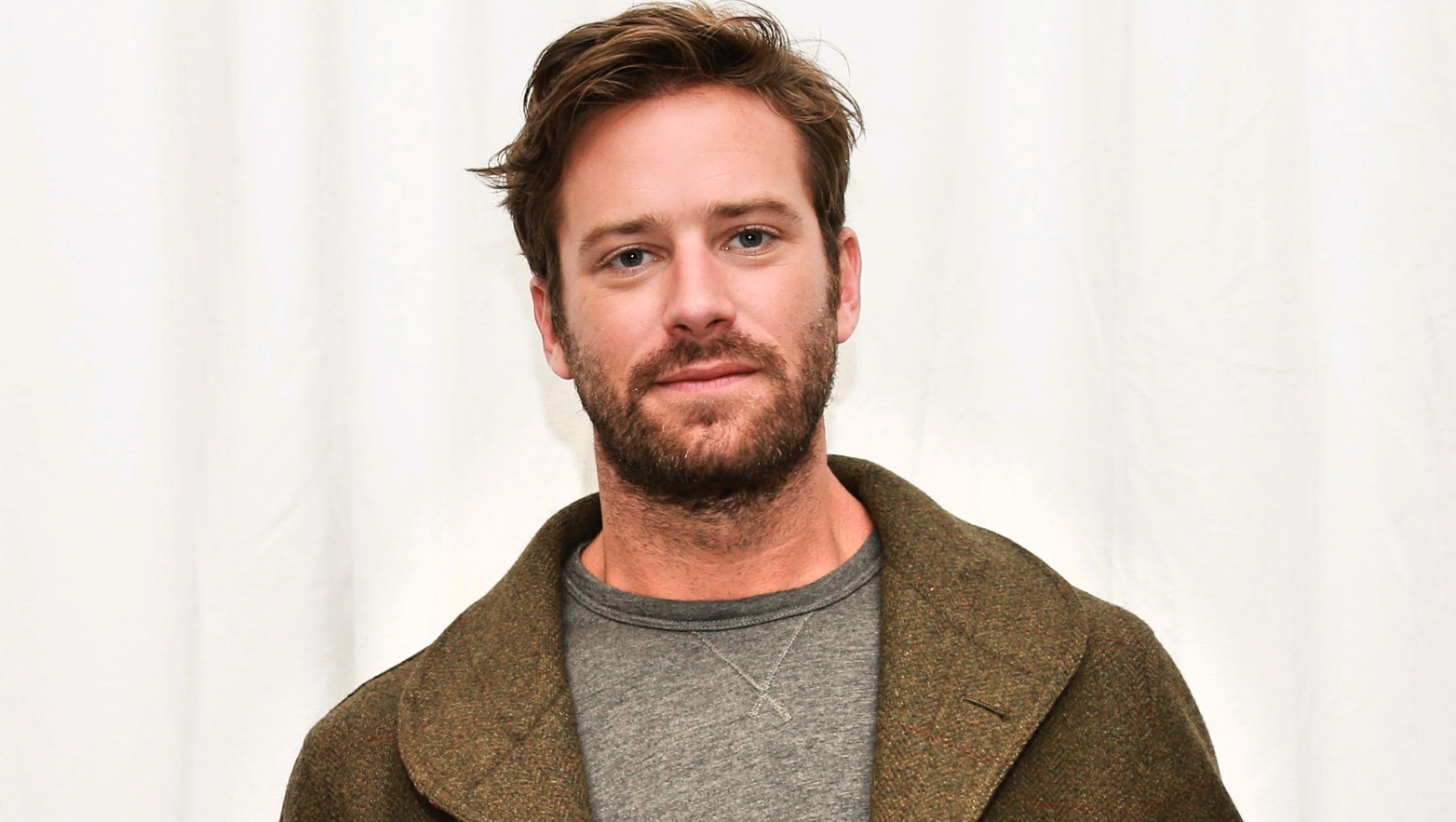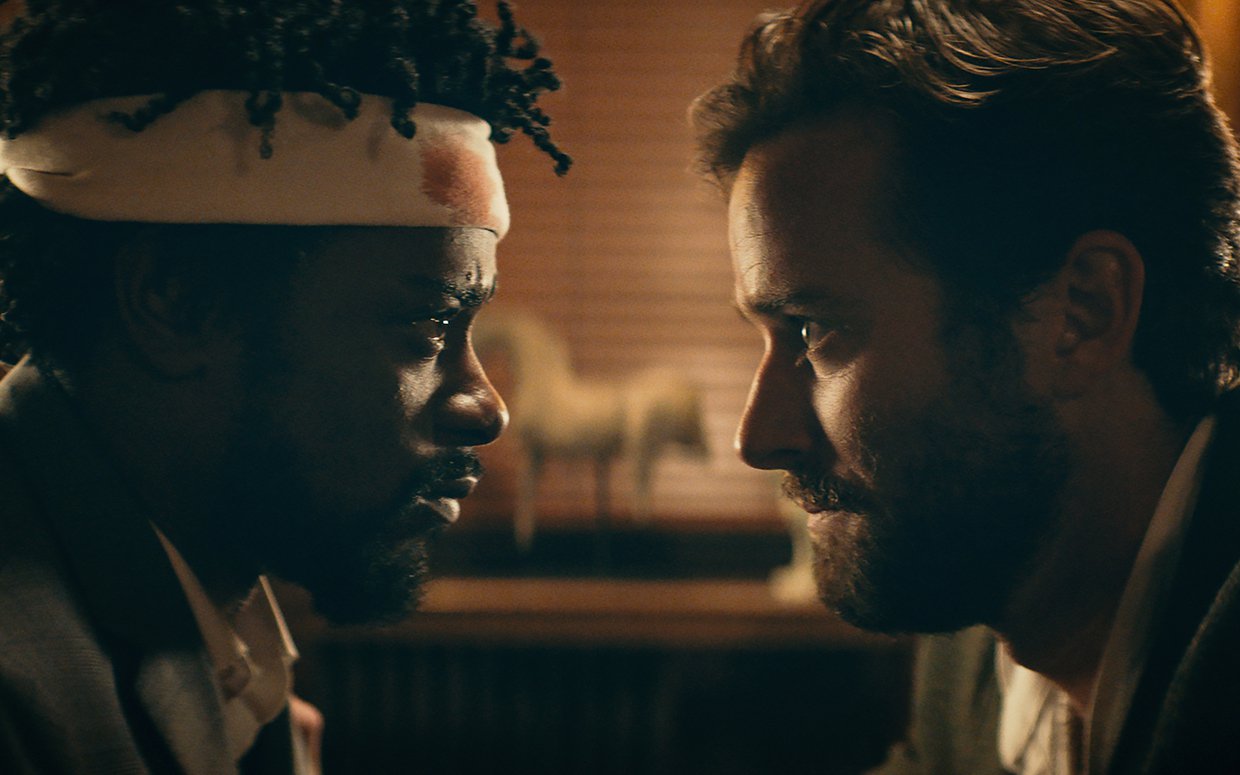
- Interviews
Armie Hammer: Playing the Foil in “Sorry To Bother You”
Armie Hammer has a supporting role as a psychopathic CEO in Boots Riley’s debut feature film Sorry to Bother You. But in his eyes, his character is not too far-fetched. Steve Lift is a new type of character for, the 31-year actor, a quite despicable businessman – a capitalist – unencumbered by ethics and with a rather odd sense of reality and what the world needs. “The thing that drew me to the project as a whole was really Boots and how specifically unique his vision and voice were,” says Hammer about his attraction to the film.
His character is a rather extreme version of a company executive, who has outrageous and rather crazy visions for the future involving slave labor. However, Hammer thinks it is an apt metaphor. “He is doing something that we see too much of on a more subtle scale, which is putting profits and dollars over human life. He has an idea of how he is going to save the world while making billions and billions of dollars but it involves literally destroying human lives. We see that way too much.”
Sorry to Bother You is a satire with a social conscience which Boots Riley himself calls an “absurdist dark comedy with magical realism and science fiction inspired by the world of telemarketing”. It is a commentary on capitalism, race and social injustice.
“In this sort of rampant capitalism that exists in America, it has become almost normal. Working conditions that workers have to work in order for these CEOs to make all their money or products that have things in them to make them cheaper and that actually kills people.” The leading character of the film, Cassius Green, played by Lakeith Stanfield, gets a job as a telemarketer for the firm RegalView even if he has no apparent qualifications. He is instructed by a co-worker, played by Danny Glover, to use his “white voice” when doing his sales pitch and he climbs to the top of the company and becomes very wealthy. At the same time, his less fortunate co-workers are striking for their labor rights.

With Lakeith Stanfield in a scene from Sorry to Bother You.
annapurna pictures
“It goes part and parcel with the message in Boots’ music,” says Hammer, “What is more important, the value of the individual and the worth of the individual or the value and wellbeing and worth and value of the group? That is a big part of the message of his music and also a big part of this movie.” While Cassius climbs the social ladder, his colleagues do not. The lower classes are kept in place. He is also oblivious to the fact that he is really selling slave labor and that the CEO of the company is a complete maniac. “You see what happens when individual interests are pursued at the expense of the group and what that does to people versus the consideration of the group and what that does. There is definitely a lot to say about capitalism in it and not strictly socialism but really the consideration of the group and the wellbeing of the group. I think that is a big part of what Boots had to say.”
The title of the film is the opening line for telemarketers, Hammer explains, but it is also the director’s direct comment to his audience. “It is Boots saying: ‘Hey, I know that you guys have this system in place but I am going to show you the ugly side and the terrible face of it and if this bothers you ‘well, I am sorry to bother you but this is what is going on.’ It is out of consideration but it is also- if this bothers you, I am sorry, but this is the truth.”
Ironically Hammer who so viciously caricatures the rampant capitalist, himself is the scion of one of America’s great entrepreneurial dynasties: his grandfather Armand Hammer was the legendary industrialist who ran Occidental petroleum. He never thought of following in those footsteps. “I knew I wanted to make films. I knew I wanted to live and work in the arts and that was more important to me than business. Business is such a broad term and art is also but I love the idea of making things. I love the idea of making art and for me, that does not involve paint and a canvas, it involves film and that is all I wanted to do. I know a lot of people who are in finance whether it be Wall Street or banking or whatever and they might be making a lot more money than the rest of the world, but they are a part of a massive system in terms of getting to make something specific that is meaningful and for me it was just more important to participate in art and celebrate that.”